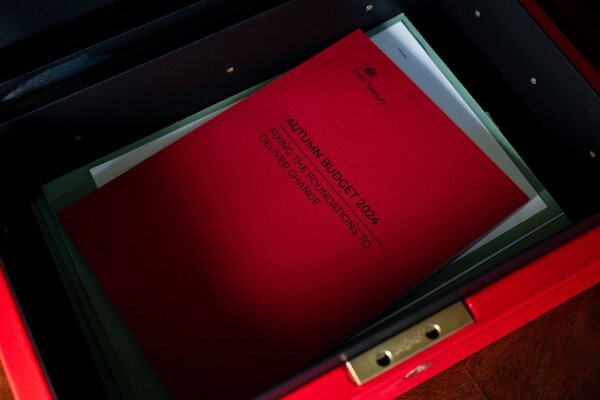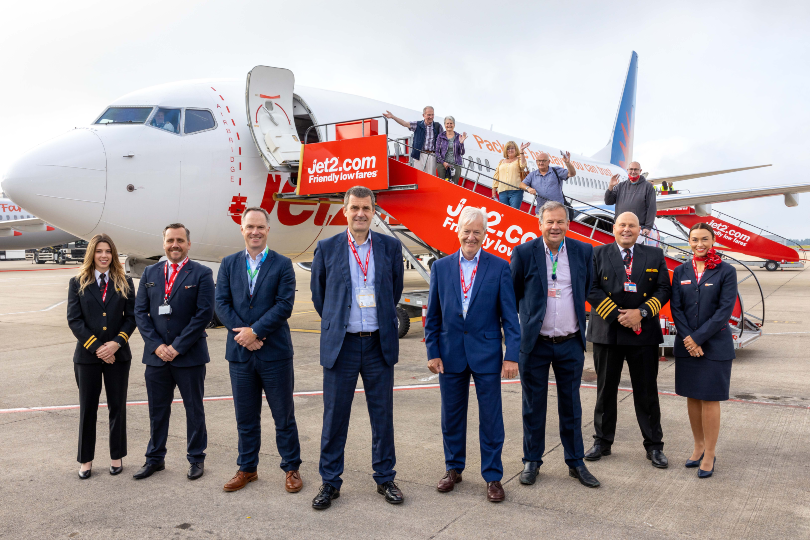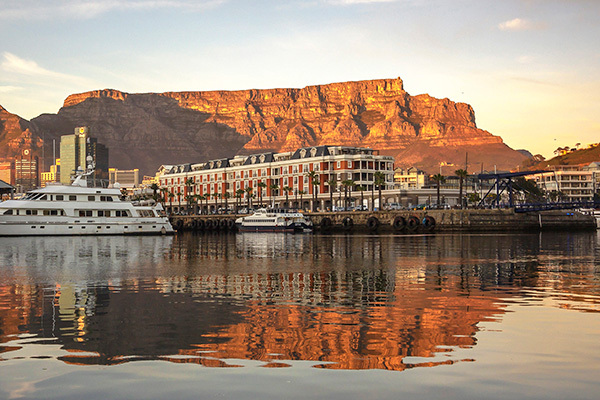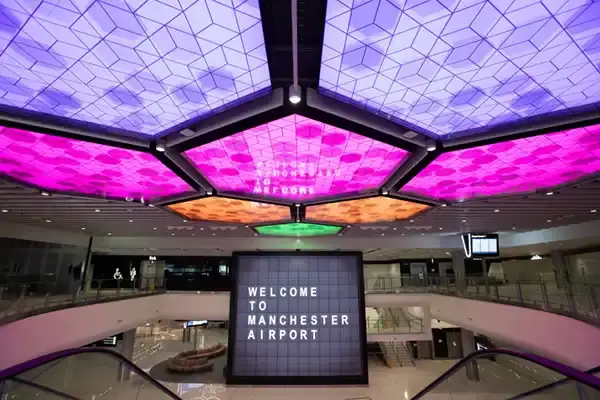'A steep climb to stand still': travel reacts to 'punishing' Budget
Travel’s senior leaders have branded the new Labour government’s first Budget "punishing", warning employers have "a steep climb to stand still" ahead of them when many of the new measures take effect next year.
In what has been billed a once-in-a-generation reset of the nation’s finances, chancellor Rachel Reeves on Wednesday (30 October) laid out far-reaching tax reforms, which include lowering the threshold at which employers will start paying National Insurance.
Reeves also announced increases in minimum wages and hikes to Air Passenger Duty, while promising to reform the UK’s business rates regime for the benefit of retail businesses.
Elsewhere, the chancellor said inflation was forecast to average no more than 2.6% over the next five years, and also announced plans for closer monitoring of government spending.
Reeves said the government was facing £22 billion of "in-year" financial pressures. "This is a Budget to fix the foundations of the economy and deliver change by protecting working people," said the chancellor.
Budget 2024 at a glance
- Air Passenger Duty is to increase by £2 on most short-haul flights, with private jet passengers set to be more heavily penalised
- The threshold at which employers pay National Insurance will fall from £9,100 to £5,000 – a move that will raise £25 billion but increase the burden on businesses with an increase in the rate from 13.8% to 15%
- Thresholds at which employees pay income tax and National Insurance will move in line with inflation from 2028, meaning fewer will be dragged into higher rate bands
- SMEs will see the Employment Allowance increase from £5,000 to £10,500
- Minimum wages will rise next April, with apprentices benefitting most
- Corporation tax will remain at 25% until the next election
- The business rates regime will be reformed, with retailers' current 75% discount ending in next April to be replaced by a 40% discount
- Eleven green hydrogen plants will be built
- Inflation is forecast to average no more than 2.6% until 2029
- Government spending will be monitored by an Office for Value for Money, while a Covid Corruption Commissioner will be appointed shortly
'Sell more, charge more, or have less people'
Blue Bay Travel chief executive Alistair Rowland told TTG his "thoughts and fears" had been played out. "We thought National Insurance would increase, but didn't expect the double hit of the threshold moving too," he said.
"With the new National Living Wage and the lower threshold – plus another more than 10% increase from April – that's a 30% rise of the past three years. It's just not sustainable.
"It will challenge us in areas that should be protected, such as apprenticeship growth, with the steep increase in the 18-plus cohort. It's tax in all the wrong areas. Add to that the increase in business rates, with the reduction in credits to 40%.
"SMEs have got a dilemma – sell more, charge more, or choose to have less people. This will settle down, but on day one of the new financial year, employers have a steep climb to stand still. Government should be incentivising business, not charging more for it."
Small businesses 'squeezed from every direction'
Julia Lo Bue-Said, chief executive of The Advantage Travel Partnership, said described the tax measures outlined in the chancellor's statement as "punishing" and would "serve to strangle the very enterprises that form the backbone of our economy".
"With tax hikes piling on top of existing pressures, small business owners are being squeezed from every direction, leaving them with impossible choices between survival and growth.
"The new tax rises come on the back of a tough few years, adding more cost to businesses when many in our sector are still in recovery mode post pandemic.
"Further detail is required to fully understand the impact of business rate reform from 2026, which the chancellor alluded to, and what impact this will have for business.
"APD sees another tax hike for anyone flying out of the UK, increasingly making the UK an uncompetitive destination. This will not support business growth and puts more pressure on households discretionary spend on travel, business travel and the visitor economy."
'Hard-earned holidays must remain within reach'
Abta chief executive Mark Tanzer said Wednesday's Budget announcement would make life more difficult for travel businesses "in the short-term". On business rates relief, Tanzer said that while an extension was welcome, the cut from 75% relief to 40% still represented "a significant hike" in bills for many high street agents. "Additionally, the cost of employing the staff the industry needs to thrive will increase for many firms."
Tanzer said the decision to increase the short-haul rate of APD from £13 to £15 was "disappointing". "UK travellers already pay more on air tax than most other countries, and it is one of a multitude of taxes and charges people pay on their holidays. The UK already charges the highest rate of APD in Europe. The Office for Budgetary Responsibility notes APD is among the fastest growing of all taxes in the UK. The government must keep a close eye on the overall cost of travel to ensure hard-earned holidays remain within reach."
Tanzer did, however, welcome the chancellor's recognition of the importance of high street businesses, the promise of lower business rates from 2026, and investment in decarbonising aviation. "Abta members are responsible for the happiest weeks of people’s year – their holidays – which offer the opportunity to relax, spend time with family and are valuable for mental health and wellbeing," said Tanzer.
"The travel industry has made a remarkable recovery after the pandemic, and has bucked the wider consumer confidence trend in recent months with people continuing to spend and commit to their holidays. We hope the additional pressures this Budget puts on businesses doesn’t serve to slow down that trajectory and dampen the sector’s growth opportunities.”
'Continued business rates relief offers some stability'
Gary Lewis, chief executive of The Travel Network Group, said it was "promising" to see government "acknowledge the importance of the retail, hospitality, and leisure sectors" in the Budget.
"The modest £2 cap on the Air Passenger Duty increase for short-haul economy flights reflects a balanced approach, aimed at maintaining affordability for travellers, while supporting the recovery of the industry," he said.
"The decision to continue business rates relief also offers some stability to our sector. However, the reduction from a 75% to a 40% relief rate is a notable decrease, which may still place pressure on smaller businesses within our network.
"While we appreciate the government’s acknowledgment of small business needs, the simultaneous rise in minimum wages and employer National Insurance contributions could present additional financial challenges. Many of our members are small business owners who will need to adjust to these changes.
"As a member-led organisation, The Travel Network Group will remain in close communication with our members in the upcoming period, working together to ensure they are supported as these new measures are implemented."
How has the UK's aviation sector reacted?
The British Airline Pilots Association (Balpa) welcomed the chancellor's commitment to protecting employees from unfair dismissal and bullying, plus improved access to paternity and maternity leave.
Balpa also applauded the near £1 billion investment in the aerospace sector, but expressed disappointment at increases in Air Passenger Duty. “Such measures not only hinder the competitiveness of UK aviation in a global market but also fail to contribute to the sustainability goals we aspire to achieve," it said.
Karen Dee, chief executive of AirportsUK, added: “We welcome the extension of the Advanced Fuels Fund by another year, and the additional £975 million in research and development funding for aerospace, which can support the sector’s transition to zero emission flight.
"It was disappointing, however, that the chancellor increased Air Passenger Duty, especially at a time when airports are investing in new security technologies, sustainable flight and airspace modernisation, as well as facing increasing burdens in other areas.”
This message was echoed by Tim Alderslade, chief executive of Airlines UK. "We welcome the announcement of a further 12 months of funding for the Advanced Fuels Fund, which will support UK sustainable aviation fuel production – a key airline priority with the SAF mandate due to commence in January.
“Air Passenger Duty, however, already makes the UK less competitive, and further increases in addition to rises in other business levies will impact growth, directly hitting the pockets of ordinary travellers and making it harder for UK airlines to put on new routes."
Sign up for weekday travel news and analysis straight to your inbox

James Chapple
Supplier Directory
Find contacts for 260+ travel suppliers. Type name, company or destination.





















